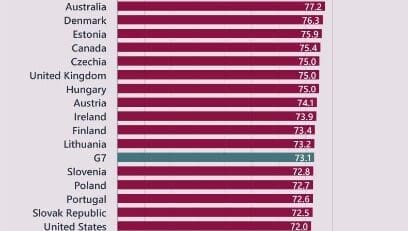The fiscal autonomy of municipalities has not yet been brought in the right focus
Much of the economic and political benefit of decentralized public finance comes from the ability of local governments to make their own tax decisions. A local government that can determine its own tax bases, tax rates and other characteristics of a tax has a high degree of tax autonomy or taxing power.
Fiscal autonomy in principle is an organization that if it fails to empower the local government units with the right tools to provide better services to the community and the proper distribution of funds based on the needs of the citizens, then it has lost the opportunity to be a good policy and in function of the redistribution of well-being.
To ensure accurate comparisons regarding the importance of fiscal independence of local governments, it is important that municipalities can achieve that their local tax systems, according to the tax rate, collect for those revenues as determined by the legislation of can form their basis for functional autonomy.
An important indicator that reflects functional fiscal autonomy is the ratio of local tax revenues to the total budget revenues of a country. The indicative level of this report is a concrete and transparent reflection of the functioning of local autonomy.
The share of local government revenues in the Albanian state budget in relation to total tax revenues is at the level of 5% for the year 2022 as well as the first 6 months of 2023. This ratio of the share of local taxes is the same as the average that observed in the neighboring countries of the Western Balkans.
Meanwhile, this ratio in the EU is on average 22%, but varying from 1.3% in Malta, 8% in Greece and Ireland and over 40% in the Scandinavian countries.
The results of the index show that government transfers constitute the most important source of funds for the local government, i.e. for the execution of local functions and the provision of services. As can be seen from the annual analyzes of local performance, the great dependence of municipalities on the center shows that until today, apart from words, there has been no focus from the government to make it functional according to the tasks it has. The lack of focus can also be seen in the income analysis presented by the Ministry of Finance, where the part related to the performance of local income is almost non-existent.
The reform and modernization of central and local fiscal institutions has been a constant theme in the last two decades. As a result of this political approach, there has been a tendency for governments to increase the financial autonomy of municipalities.
But in fact, until today, a fiscal autonomy that could lead to better performance by removing obstacles to effective and efficient management as well as maintaining the provision of accountability and proper transparency seems to be out of the focus of governments.
In fact, the only focus we have seen in the past years is the increase in government control through determining the development of investments and major expenditures and the reduction of local autonomy to make decisions that coincide with such a status. We can even say that the dependence of the municipalities’ fiscal autonomy has increased in relation to the objectives that should have been met in the year we are commenting on.
Although the reasons are due to the low levels of the private sector and industry in the municipality, as well as the lack of capacity for generating income, or even numerous problems related to the general way of functioning of the fiscal administration, it remains that if the mindset does not change and the focus can change the local fiscal performance truly little.
However, we believe that increasing autonomy can solve administrative problems and problems of fiscal governance, such as the lack of organizational efficiency, and the provision of effective services to the public. Such problems that hinder the growth of autonomy, such as: low pay, low quality staff, low levels of retention and recruitment based on political patronage can be improved through autonomy in the areas of human resources.
Political interference can be addressed through increased independence from the branches of government, as well as adequate funding can be ensured through the adoption of additional instruments beyond those that have been limited to date by starting to think smartly about increasing funding sources through their diversification, from municipal bonds to increased investments based on technological approaches with cost – benefit achieved.
But to achieve the whole theory and put it into operation, first the policy must dismantle the patronage and further let the local government enjoy the independence given by the law. The opposite keeps the local system at the levels that it is now, but losing the opportunities and advantages that the healthy practice of local autonomy gives.




Leave a Reply
You must be logged in to post a comment.